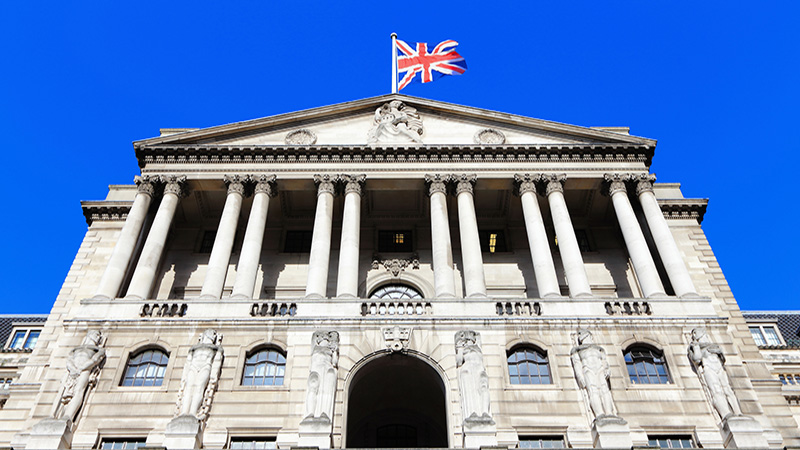The Bank of England has kept interest rates at 5% after the Monetary Policy Committee’s latest meeting today (19 September)
It had cut rates to 5% in August from a 16-year high of 5.25%, having brought inflation in the UK down to its 2% target.
However, news yesterday that the Consumer Price Index (CPI) bounced back up to 2.2% for the second consecutive month caused some concern for policymakers and led them to be more cautious, according to Rob Morgan, chief investment analyst at Charles Stanley.
See also: Federal Reserve cuts interest rates by half a percentage point
Whilst the slight rise in headline inflation didn’t seem too egregious on the surface, core inflation – which excluding energy, food, alcohol and tobacco – rose to 3.6% in August, and CPI services increased to an even steeper 5.6%.
In light of this, Morgan said UK inflation is “still too elevated to justify acting again so soon”.
“Instead, a move in November seems odds on,” he added. “By this stage the data may show a further moderation in wage pressures which feed into services inflation, plus any ramifications from the Budget on October 30th can be considered. A particularly fiscally tight Budget may tip the scales towards a more rapid loosening of monetary policy from that point.”
See also: Downing’s Evan-Cook: How advisers can tackle the dual threat from AI
Quilter investment strategist Lindsay James also highlighted October’s Autumn Budget as a key influence over the Bank’s monetary direction in the coming months.
The new Labour government’s emphasis on pushing for higher growth and productivity could worsen the inflationary situation in the UK by the Monetary Policy Comitte’s next meeting on 7 November.
“Taxes are guaranteed to rise, but by what extent we are not sure and thus the economic impact cannot be properly gauged,” James explained. “Businesses and consumers are likely to cut back on spending in anticipation of changes to their income and as such growth could slide further.”
“A rate cut would have been especially welcomed by consumers and businesses alike, given the economy remains close to stall speed. Having had a positive and rather buoyant first half of 2024, dark clouds are gathering once again and as such action from the BoE will be required sooner rather than later.”
See also: BCA Research: Bitcoin’s volatility is a feature asset allocators can use, not a bug
Eight of the nine members of the Committee voted in favor of maintaining the current rate, with only one person opting to reduce it 0.25 percentage points to 4.75%.
But the Bank’s decision to maintain rates differed greatly from the US Federal Reserve, which dropped rates by a sizable 50 basis points yesterday (18 September).
This story was written by our sister title, Portfolio Adviser








